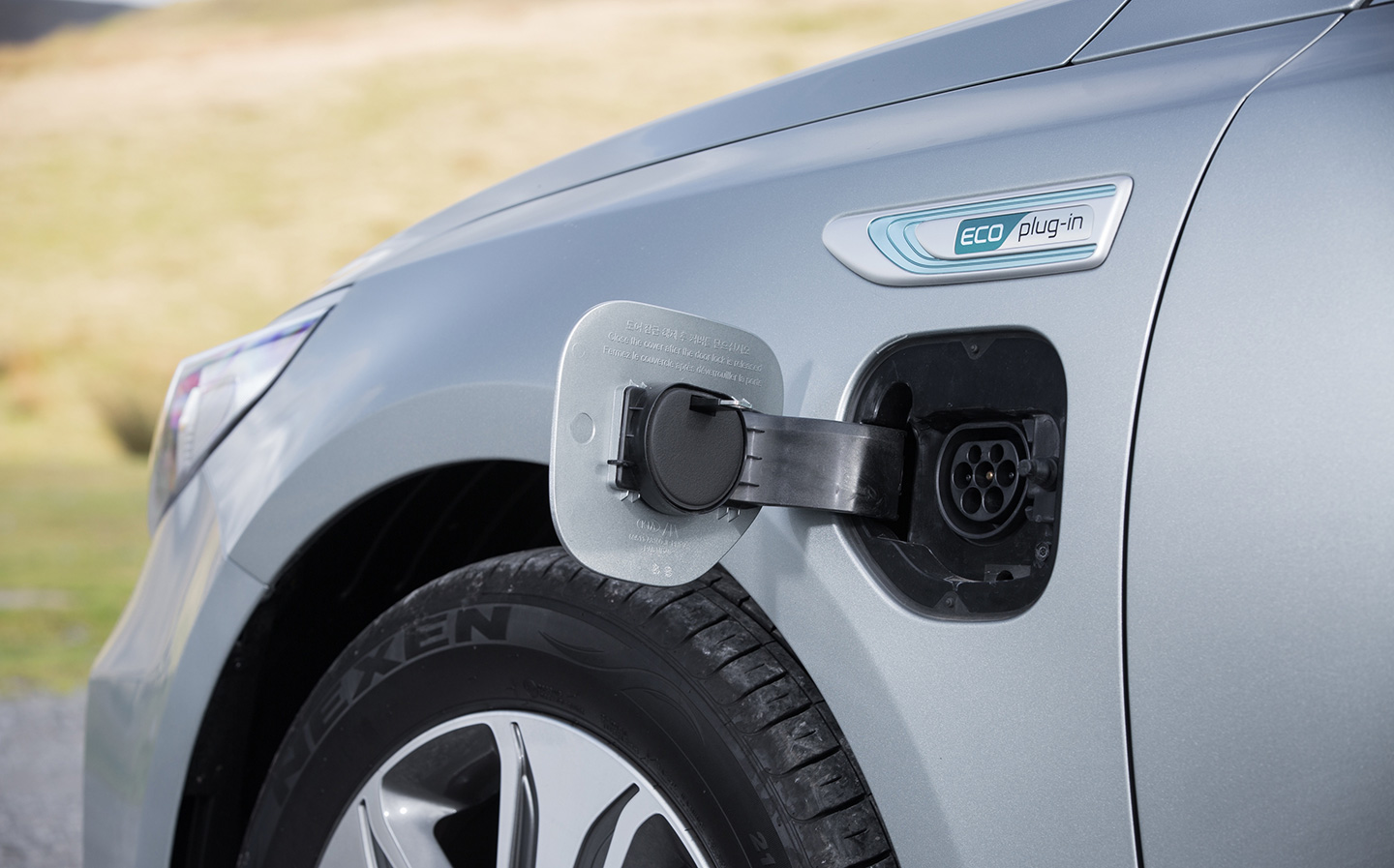Government scraps plug-in hybrid grant for new car buyers
Incentives for fully-electric cars have also been reduced
NEW PLUG-IN hybrid cars will no longer be eligible for a £2,500 government grant from November 9, as part of reforms to incentives for ultra-low emission vehicles.
The Department for Transport (DfT) announced the Plug-in Car Grant (PICG) scheme revision, which will now exclude new cars that emit more than 50g/km of CO2 and can’t travel more than 69 miles exclusively on electric power alone.
As no plug-in hybrid car that’s currently on sale in the UK matches this criteria, new car buyers who wish to make use of the PICG will need to purchase an eligible car within the next four weeks.
Despite the Government’s desire to increase the uptake of pure-electric and hydrogen fuel cell cars as part of its Road to Zero strategy, the DfT has reduced the incentives for these vehicles too. All cars bought from November 9, 2018 with sub-50g/km emissions and an electric range of at least 70 miles will only be eligible for a £3,500 grant — which is £1,000 down on the subsidy that’s currently offered.
In a statement, the DfT claimed its decision to scrap the subsidies for hybrid cars on sale today was influenced by the increased share of the new car market that plug-in hybrids currently account for. According to the government body: “The PICG has helped the plug-in hybrid market become more established, and the government will now focus its support on zero emission models like pure electric and hydrogen fuel cell cars.”
Though the scheme has helped increase the uptake of hybrid car ownership (according to the DfT, over 160,000 cars have been bought using the grant since it was introduced in 2011), alternatively-powered cars still make up a small portion of new car sales in the UK. Of the 1.91m new cars that have been registered this year so far, only 114,574 have been hybrid or zero-emissions, with only 40,410 of that total being eligible for the PICG subsidy.
Car makers that sell plug-in hybrid cars reacted negatively to the announced. In a statement, Mitsubishi (the maker of the UK’s best-selling plug-in hybrid, the Outlander PHEV) said: “As motorists seek a low-emission, fuel efficient alternative to diesel vehicles, now should be the ideal time for the Government to incentivise Plug-in hybrid technology, not pull its support.”
It added: “Such technology forms the perfect segue between conventional petrol and diesel powered and full electric vehicles, particularly as the charging network is nowhere near evolved enough to support widespread full EV use.”
Mike Hawes, Chief Executive of the Society of Motor Manufacturers and Traders, said: “We understand the pressure on the public purse but, given the importance of environmental goals, it’s astounding that just three months after publishing its ambitious vision for a zero emissions future, government has slashed the very incentive that offers our best chance of getting there.
“Industry is working hard to address the challenges of CO2 and air quality but, while it can produce the technology, it cannot determine the pace of uptake. We have consistently said that if the UK is to be fit for an electrified future, we need a world-class package of incentives and infrastructure. Government needs to rethink its policy, else its ambitions will never be realised.”
Jack Cousens, head of roads policy for the AA said: “The Government wants to end the sale of petrol and diesel cars, but scrapping grants for low emission cars may well stall their progress.
“Seven out of 10 (69%) of drivers say grants are necessary to buy an ultra-low emission vehicle until such time that the price compared to a conventional petrol or diesel car is the same. And eight out of 10 (83%) say that the high purchase price of electric and hybrid cars is the main stumbling block to owning such a car. This announcement will simply put more drivers off buying greener cars.”
Tweet to @J_S_Allen Follow @J_S_Allen
UK Government confirms ban on conventional petrol and diesel cars in 2040





